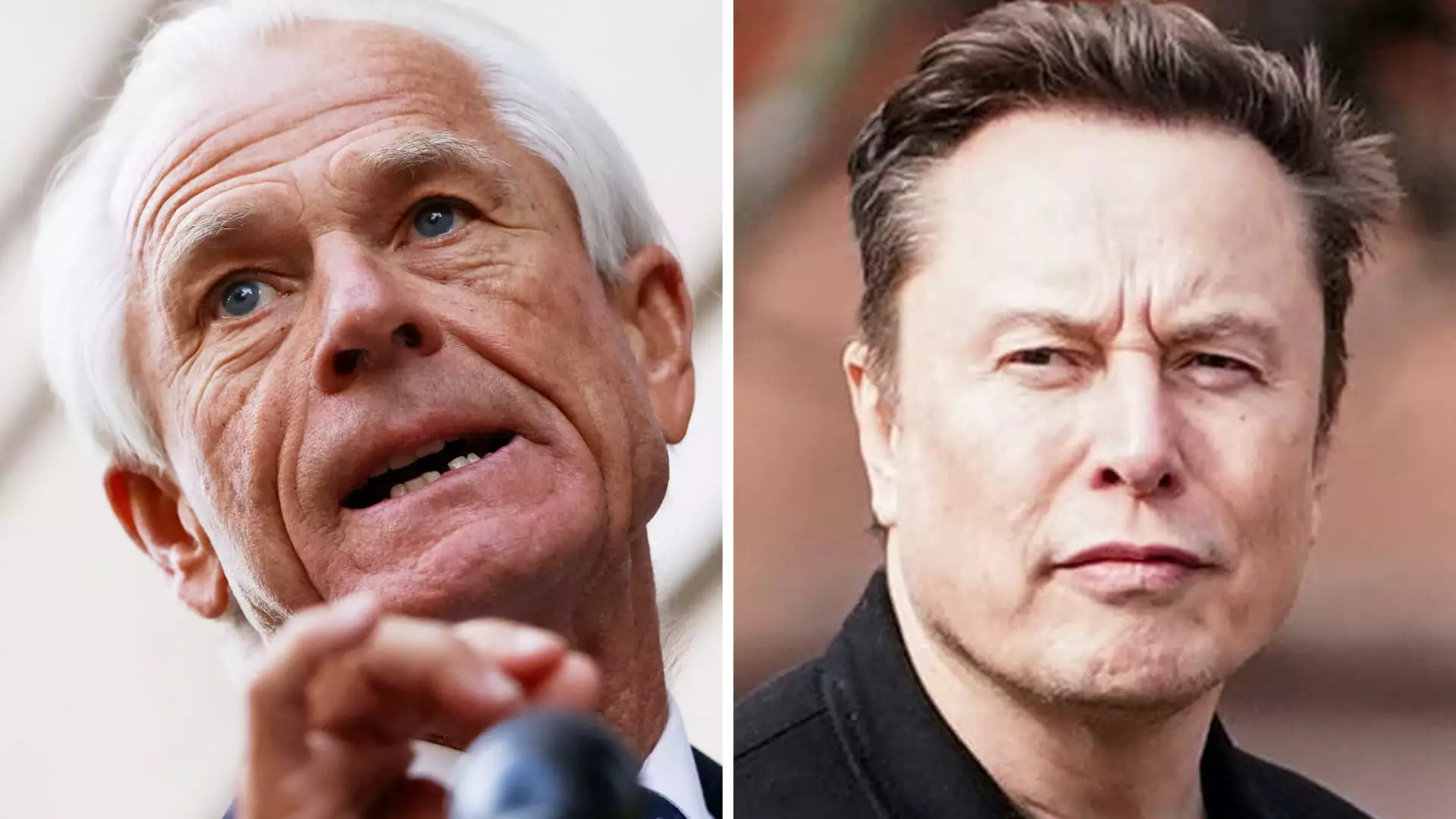In recent weeks, tensions have emerged within the Trump administration regarding trade policy, and a surprising face-off between Peter Navarro, a prominent trade adviser, and Elon Musk, the billionaire tech mastermind, has put the spotlight on these rifts. The discord began when Navarro made remarks about Musk’s views on manufacturing and tariffs, which Musk quickly dismissed by calling Navarro a “moron.” Such public spats are more than just personal insults; they reveal significant ideological divides within the administration about how the U.S. should manage its relationship with global trade and the very nature of American manufacturing.
Industry versus Ideology
At the heart of the conflict lies a larger issue: how trade policies can either support or undermine American manufacturing. Navarro, often seen as a champion of hardline trade measures, is adamant about the need for domestic production. He emphasizes manufacturing in key American regions, insisting on local production of critical car components. This isn’t just about economics—it’s a rallying cry rooted in American exceptionalism, a belief that the nation should prioritize its own workforce over international conveniences. Meanwhile, Musk’s approach leans towards global efficiency, highlighting that his company, Tesla, contributes significantly to the American economy while also relying on international supply chains.
The divergence can be further illustrated with Musk’s commentary on his desire for “zero tariffs” between the U.S. and Europe. Such a stance, while beneficial in the short-term for companies like Tesla, raises alarms for traditionalists like Navarro, who argue that reliance on foreign manufacturing stifles domestic job growth and compromises national interests. Musk may see himself as an innovative leader pushing for increased trade freedom, but Navarro views that outlook as naive—equating it to an abandonment of American workers.
The Complexity of Trade Deals
The White House’s trade policies under President Trump have been characterized by volatility and unpredictability, which are evident from Navarro’s defense of both the administration’s initial tariffs and Trump’s subsequent decision to delay some of those tariffs. This strategic retreat is an essential maneuver to buy time to negotiate better deals, but it illustrates a reactive approach rather than a well-considered trade strategy. Instead of a coherent blueprint that addresses long-term trade inequities, we have a patchwork of temporary solutions that lack strategic vision.
As Navarro frequently proclaims during media appearances, the administration is poised for rapid negotiations—however, the actual effectiveness of these talks remains uncertain. The reality is that these tactics are fraught with risks: while they may appease different factions within the administration, they create confusion for businesses who rely on stable trade regulations to plan their futures.
Neglecting the Workforce
The broader implications of this intra-administration feud are significant, particularly regarding workforce considerations. Trade deals can either lift millions out of poverty or leave them behind in the dust. Striking a balance between globalization and protecting American jobs is of utmost importance. However, issues arise when ideology pushes individuals like Navarro to prioritize protectionism without considering the global nature of business in the 21st century.
It is critical to recognize that just because an individual encapsulates American production doesn’t automatically make their viewpoint the most effective. Technological advancements mean that the narrative of “made in America” must evolve, allowing for a nuanced understanding of how modern economies function.
Musk’s criticisms of Navarro, while blunt and public, hint at frustrations that many entrepreneurs face when navigating government regulations. This dynamic makes it essential for policymakers to foster an environment that supports innovation while still ensuring that American labor is not left to fend for itself in a rapidly changing economy.
Reflecting on Leadership
Ultimately, this clash between Navarro and Musk underscores a profound leadership challenge within the Trump administration. The inability to reconcile differing views on globalization, trade policy, and economic growth poses a significant risk not just to internal cohesion, but to the fundamental economic fabric of the nation. As influential figures continue to publicly spar, they must recognize that the stakes are incredibly high: fostering America’s economy and promoting sustainable growth requires a collaborative approach that marries tradition with innovation, not a straightforward tug-of-war over outdated ideologies.

